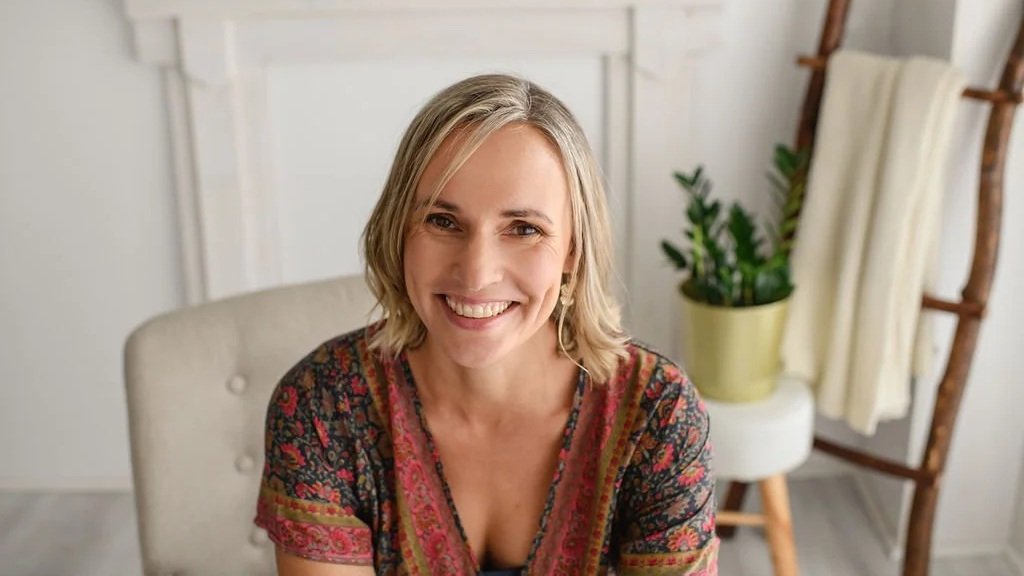Meet Bel Masterman: The Heart Behind The Brain Coach
Bel Masterman, Principal Therapist
Bel Masterman is the principal therapist here at The Brain Coach, where her life’s work centres on helping people discover their own path to inner freedom and live more authentically.
Her journey into therapy and counselling wasn’t a predictable one.
Bel began her career as a journalist, led by an interest in uncovering stories and a fascination with how people engaged in the world. She thrived on listening, exploring and connecting. Over time, however, she realised that what truly inspired her wasn’t just telling stories, it was supporting people through the emotional struggles and journeys that shaped them. That realisation became a pivotal moment - she retrained and decided to dedicate her life to helping others reconnect with their true selves.
Bel is passionate about helping people release the weight of unresolved trauma, past experiences and negative self-beliefs. These burdens often leave individuals feeling stuck, disconnected, or unable to fully step into life.
Her work goes beyond simply managing symptoms - it is about creating a safe, supportive space where healing can unfold naturally. Bel’s role is to guide her clients as they unhook from old patterns and rediscover their internal resilience, clarity and joy.
A conversation with Bel
To understand Bel’s perspective more deeply, we asked her a few questions about her journey, values and vision for therapy.
What first drew you to therapy and healing?
“It started back at uni while working for a Neonatal Psychologist. Somewhere between editing papers and observing baby attachment assessments, I realised I was fascinated by how the brain works. I thought I’d pursue psychology later, but journalism whisked me into travel writing. It wasn’t until after my first child was born, and a near-death experience, that I came back to it. Seeing the power of my own healing, and the healing of my beloveds, turned curiosity into passion.”
Who has been your most influential mentor?
“My first boss, the legendary Neonatal Psychologist Beulah Warren. Watching her support families was like seeing someone light candles in dark rooms. She showed me what true healing looks like.”
What personal values guide your work?
“I believe we all have healing potential within us. The biggest hurdles are usually access to services, resources, time, and those pesky programmed beliefs that whisper we can’t change.”
What does an average workday look like?
“I start at 5am, with meditation, then it’s the usual morning chaos of getting kids onto the school bus before squeezing in yoga, Pilates, or a run with the dog. After a bit of admin, it’s into client sessions. Client sessions fill my day, and I weave in Brain Scan Breaths to reset between them. Evenings are family-focused, where I transform into dinner cook and professional question-asker. Then before bed, I reflect, set intention and finish with a Safe State practice.”
What has been your proudest moment in this work?
“There are so many, it feels impossible to choose. But one of my earliest private clients comes to mind - a man with a very complex childhood who was barely leaving his home. Over time, he not only rebuilt his life but also overcame an extreme arachnophobia (fear of spiders). Witnessing that kind of transformation reminds me how extraordinary humans are - and pursuing a Safe State is a powerful starting point for that journey.”
What do people often misunderstand about therapy?
“Yes - that healing should look the same for everyone. It doesn’t. Every path is different, and comparing your journey to someone else’s is a shortcut to misery. Respecting your own pace is part of the work.”
What lessons have you learned from clients?
“That my clients are my greatest teachers. Healing works best when I follow their lead.”
What’s been your biggest personal challenge?
“When my baby boy was in neonatal intensive care, I had to surrender to his capacity to survive. That experience taught me love and connection can carry us through almost anything - though they can also be our most brutal teachers.”
How do you define a life well lived?
“Love and connection (preferably away from screens!). We don’t need dozens of people, but we do deserve to choose who we give our energy to. To me, a life well lived includes having safe places to rest our hearts.”
What excites you most about the future of therapy?
“Neuroscience is catching up with what many healers have always known - that love, connection and safety aren’t luxuries; they’re essential for healing. I look forward to a future where tools like brain scans make this knowledge even more accessible and affordable.”
“At the end of the day, I hope people remember that they healed themselves.”
Bel Masterman, The Brain Coach
Moving from surviving to thriving
Bel’s mission at The Brain Coach is clear: to help people move beyond survival mode and into lives marked by presence, freedom and connection. She supports clients with trauma recovery, nervous system regulation, stress and anxiety, relationship challenges, and rediscovering authenticity.
For Bel, the most rewarding part of this work is not just witnessing progress, but seeing people reclaim their own power. As she says, “At the end of the day, I hope people remember that they healed themselves.”
Therapy shaped by life and learning
Because no two people are the same, Bel draws from a wide range of therapeutic modalities, tailoring her approach to support each individual and their circumstances.
Her qualifications and experience include:
EMDR trauma counselling - evidence-based support for processing and healing trauma.
Hypnotherapy - helping release subconscious patterns that hold people back.
Meditation and yoga teaching - restoring balance to both mind and body.
Dr Joe Dispenza’s Inner Health Coalition training - mind-body techniques for transformation.
Neurofeedback - supporting nervous system regulation and focus.
Polyvagal Safe and Sound Protocol - restoring calm, connection and emotional safety.
Energy Codes Coaching & Body Awake Training with Dr Sue Morter - integrating energy and body awareness for healing.
Attachment theory training - including time spent working with Beulah Warren, a pioneer in the field.
Bel continues to expand her knowledge by studying Internal Family Systems (IFS therapy) and completing HeartMath training, both of which enhance her ability to support emotional regulation and resilience.
This breadth of training enables her to support people in a holistic way by addressing the mind, body and nervous system for lasting change
Why safety matters
Central to Bel’s philosophy is the idea of safety. When the nervous system is locked in “survival mode” - fight, flight freeze or fawn - it becomes difficult to think clearly, connect with others or truly rest. Safety is the foundation for healing. It’s a theme she returns to often: healing doesn’t happen in environments of pressure or fear, it happens when people feel secure, supported and free to be themselves. Through a range of techniques and exercises, Bel helps clients return to a state of safety.
Ready to begin?
Bel offers a free 15-minute consultation to help people explore whether her approach is the right fit. She knows that change is possible and all of us have the potential to unhook from the past and step into a freer, brighter future.




